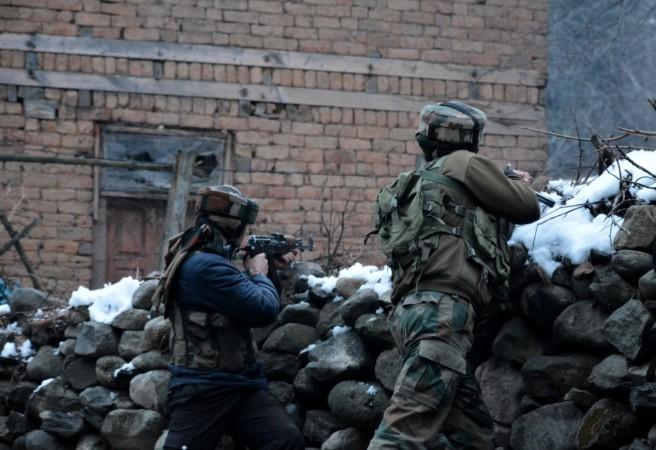
The Narendra Modi government has witnessed a few terror attacks (Pathankot, Uri) but so far, things were more restricted to the ambit of the military forces. The attack on Amarnath pilgrims in Anantnag in Jammu and Kashmir on Monday, June 10, marks an entirely new turn in Prime Minister Modi's policy on terrorism. It has put India's superman prime minister before a very crucial question apart from one asking the lapse in security. It asks him: Where is your Kashmir policy heading?
The Anantnag attack has made the Kashmir question something more than nationalistic voices – both by the civilian leadership and military – can define. It has raised a new question about the militancy in the Valley besides of course, seeking an explanation from the current NDA government on its future roadmap for the disturbed state.
It is not that pilgrims have been targeted for the first time in Jammu & Kashmir. In the years 2000, 2001 and 2002 as well, there have been instances of attacks on innocent pilgrims and all those happened when the BJP was in power at the Centre.
What Modi govt is trying to do and what's happening is different
PM Modi and his government's other leaders have been speaking a lot of improving things in Kashmir through development but the tragedy in Anantnag has proved that the reality is saying a completely different story. One suspects the overdose of nationalism to find a solution for Kashmir problem has actually backfired, so much so that the very cultural fabric of the state is under a serious danger. Modi's India has done a disservice to the idea of 'Kashmiriyat', something that Vajpayee had seriously emphasised on.
Security cannot be foolproof if the ground reality is in a shambles. True, the pilgrims' bus came under attack because there were some lapses in the security but at the same time, it is also true that the ground situation in Kashmir has become so tumultuous now that the security apparatus has come under a serious pressure. More than the security, it is the political failure which is seriously hurting Kashmir and there seems to be no light at the end of the tunnel.
The failure of the 'political' has badly hurt Kashmir
The failure of the political over the years has eventually made Kashmir into a free zone for the terrorists to operate. The chaos in the state's 'oil-and-water-never-mixes' government comprising the PDP and BJP and New Delhi's adopting a strong stance vis-a-vis the state have guaranteed that the administration has not taken up the issue through empathy and statesmanship and this has given militancy an ample opportunity to thrive.
What has complicated the matter is that the current militancy has no definite identity. The institutional face of terrorism in Jammu and Kashmir has ceased to exist and this has reduced the chances of restoration of peace even more.
Amarnath pilgrimage is seen as a special occasion which binds religious faiths but Monday's attack makes it evident that beliefs had started to drift apart seriously in this India, making way for disaster. The pilgrimage had remained immune from militancy even in the years when it was terribly high. But not anymore.
July 10 massacre will raise questions for Modi
It will not be an exaggeration to say that the July 10 massacre could be Modi's own 26/11. It is not the death tally but the fact that civilians who had arrived as guests were killed indiscriminately by terrorists to take revenge against the state. The implication of this is huge, especially in a state where things look increasingly spiralling out of control. Modi and his advisers must come up with a response and roadmap fast for the menace will certainly not die down. Rather, it may feel all the more bolstered by the 'success'.
Internationally, Modi's call for zero tolerance against terror could also sound weak in the wake of the Anantnag attacks. It could also jeopardise New Delhi's Kashmir policy. The implication of the deaths of Gujarati civilians in Kashmir could also see an impact in the upcoming elections in that state.
There are too many possibilities to unfold from here on. The pressure on Modi will be humongous. His government has so far tried to manage Kashmir with a mixed strategy of confrontation and development. It has not delivered the desired results so far and things are looking far more ominous now.

















